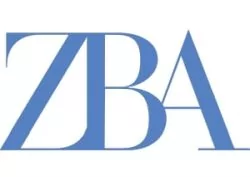- In its recent judgement in Sportking India Limited vs. Owners and Parties Interested in the Vessel M.V. Marintrust 1 and Ors.,1 the Calcutta High Court reiterated the importance of adhering to prescribed timelines for filing a written statement (statement of defence) under the Code of Civil Procedure ("CPC") as amended by the Commercial Courts Act, 2015 ("Commercial Courts Act").
- The Court emphasized that the prescribed time-limit of 30 days, along with the discretionary extension of 90 days, totalling 120 days from the date of service of writ of summons, is mandatory and cannot be extended. The Judgement clarified that the Courts are divested of any discretion to permit a defendant to file the written statement beyond this statutory time-limit.
- In this case the defendant argued that even though it had not filed the written statement within the time-limit, its application for leave to file the written statement beyond the statutory time-bar was within the 120 day time-limit. The defendant also contended that it was late by only one day in filing the written statement. The defendant urged the Court to exercise its equitable jurisdiction and permit the filing of the written statement considering these factors.
- Upon a scrutiny of relevant statutory provisions (Order VIII Rules 1 and 10; and Order V Rule 1 of the CPC, as amended by Commercial Courts Act), the Calcutta High Court held that failure to file the written statement within the 120-day limit results in forfeiture of this right. The Court emphasized that the legislative intent of the Commercial Courts Act was to eliminate discretion and equitable considerations regarding late filings, which had led to a culture of judicial delay.
- Furthermore, the Court gave short shrift to the fact that the defendant had filed the application for filing the written statement beyond the statutory time-bar within the 120-day time-limit, observing that the crucial determinant was whether the written statement was in fact "filed" within the specified timeframe. The Court noted that the date of filing of the application to file the written statement beyond the time-bar was irrelevant.
- In a notable observation, the Court held that the delay beyond 120 days is not a matter of 1 or 20 or 100 days, but any number of days which falls beyond the prescribed timeline of 120 days, will result in forfeiture of the defendant's right to file the written statement. The Court held that "there is no place for equitable considerations when it comes to Commercial Suits" .
- Addressing another contention regarding the service of the writ of summons at the corporate office rather than the registered office of the defendant, the Court upheld the sufficiency of service at the corporate office of the defendant under the provisions of CPC, thereby affirming the earlier judgement of the Calcutta High Court in Hindustan Unilever Limited vs. Emami Limited. 2
- This is a noteworthy judgement, as it addresses a common defence- where the defendant claims that it was late by one day / miniscule number of days in filing the written statement or that their application to file the written statement beyond the 120-day time-limit was within time. The Court in unequivocal terms ruled that it will not employ any equitable consideration in condoning the delay in filing of written statements in commercial suits.
- The decision aligns India's position with other major commercial law jurisdictions, emphasizing the sanctity and importance of statutory timelines in civil litigation and strengthens user confidence in India's commercial courts.
Footnotes
1. ZBA successfully represented the Plaintiff in this case in resisting the Defendant's application to file its written statement beyond the 120-day time-limit prescribed under CPC, as amended by the Commercial Courts Act. (Judgement and Order dated 24 November 2023 in G.A. No. 2 of 2023 in Admiralty Suit No. 3 of 2023.)
2. Hindustan Unilever Limited vs. Emami Limited, MANU/WB/0189/2023.
The above is a generic analysis and should not be regarded as a substitute for specific advice based on the facts of a client's objectives and specific commercial agreements reached. Please do reach out to us at mail@zba.co.in for any queries.



